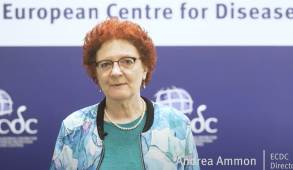Covid-19 update: 25 June
Daily reported cases were over 16,000 on Wednesday and Thursday – levels not seen since early February. The seven-day average has doubled in just two-weeks. The latest figures for hospitalisation show that Covid admissions are growing at a lower rate – effectively doubling over a month. However, the data for hospitalisations – 204 admitted last Sunday, 20 June – lags that for cases by a few days and hospitalisations typically occur up to two weeks after a person has tested positive.
The current situation has been described as a simple race between the virus and the vaccine programme. And the government this week underlined the effectiveness of its vaccine rollout. ‘The latest data show that the vaccination programme has already saved over 14,000 lives,’ Nadhim Zahawi, vaccines minister, told Wednesday’s coronavirus briefing. ‘And I can share with you that now it has prevented over 44,500 hospitalisations in England alone – that’s 2,500 hospitalisations prevented in the past two weeks.’
He added that the change in the make-up of admissions also reflected the vaccines’ success. In January, people over 65 made up the majority of hospital admissions. This group, which was prioritised for vaccination, now make up less than a third of hospital admissions.
According to the latest Covid-19 vaccine surveillance report from Public Health England, 82% of the population now have antibodies to Covid-19 from either infection or vaccination, compared to 15% from infection alone, based on antibody testing of blood donors. And over 98% of adults aged 50 or older have antibodies.
Mr Zahawi said there was also evidence that the vaccines – especially once two doses have been delivered – were effective against the Delta variant now dominant in the UK. Recent published data from Public Health England, looking at around 500 hospital admissions with the Delta variant, showed that more than 60% were unvaccinated, 17% had received only one dose and 8% had received two doses. ‘So fewer than one in 10 people in hospital with the Delta variant had received two doses,’ he said.
The effectiveness of a full vaccination course underlined the importance of completing the programme as quickly as possible, he added. Anyone over the age of 18 can now book a vaccine and Mr Zahawi said young adults had responded enthusiastically – six appointments were booked every second in the first two days following the opening up of the system to this group.
In total nearly 44 million people have now received a first dose of vaccine, with 32 million having had both jabs. This means that 83% of those aged 18 and over have now had a first dose and 60% have had the second.
Delta developments
Latest figures from Public Health England show that there were 35,204 cases of the Delta variant found by sequencing or genotyping in the week to 16 June, compared with 2,400 of the previously dominant Alpha variant. This represents a 46% increase in Delta cases compared with last week, with the Delta variant now accounting for about 95% of new cases sequenced in the UK. A risk assessment confirms that the Delta variant appears to be more transmissible with reduced vaccine effectiveness against symptomatic infection. However, current evidence suggests that vaccine effectiveness against hospitalisation is maintained.
Surge testing was this week launched in targeted areas of Wakefield, Cumbria, Lambeth and Leeds following increases in confirmed cases of the Delta variant. Public Health England is also monitoring a mutation of the Delta variant – dubbed Delta Plus because of its acquisition of a spike protein mutation K417N.
Ruth Rankine (pictured), director of primary care at the NHS Confederation, said the vaccination numbers were ‘really encouraging’. ‘However, with case rates now as high as they were in February we are at the start of another wave, with the added threat of the new Delta Plus variant, which has already been identified in the UK,’ she said. ‘It is vital that we contain the spread of the virus, which is still putting people in hospital, taking lives and will disrupt the NHS’s ability to tackle the treatment backlog.’
With rising numbers of people again going into hospital, those not fully vaccinated should book their appointments when prompted and efforts should continue to contain the spread of the virus.
In a survey undertaken by NHS Providers, 88% of NHS leaders warned that another surge in Covid-19 cases would place additional pressures on services – with particular concern if this coincided with normal winter pressures. Prioritising demand for urgent and emergency care would also disrupt plans to clear the backlog of care over winter. And almost half of respondents said they had seen evidence of staff leaving due to early retirement, Covid-19 burnout, or other effects from working during the pandemic. Further surges in the virus would once again put pressure on the workforce.
A&E demand
The Royal College of Paediatrics and Child Health also warned this week that hospitals were seeing a dramatic rise in the numbers of young children presenting at accident and emergency departments. This was not directly due to Covid, but because of a rise in infections usually seen in the winter. There have been increased cases of respiratory infections such as respiratory syncytial virus, bronchiolitis, paraflu and rhinovirus. These infections are usually mild, but the easing of lockdown has meant children are being exposed to them as they come back into contact with other children. This has been described as creating ‘winter in June’. The college, along with the Royal College of Emergency Medicine and the Royal College of GPs, has issued advice to parents on how to treat children with mild fever and when to seek help.
The UK is not alone in targeting an acceleration in its vaccination programme. Concern is rising about the Delta variant across the globe. The European Centre for Disease Prevention and Control issued a statement estimating the variant would represent 90% of all Covid-19 viruses circulating in the European Union by the end of August. It anticipated extensive circulation during the summer, particularly among younger individuals that had not been targeted for vaccination. It said the ‘good news is that having received two doses of any of the currently available vaccines provides high protection against this variant and its consequences’. However, 30% of individuals older than 80 and about 40% of individuals older than 60 had not yet received a full vaccination course in the union.
‘At this stage it becomes crucial that the second vaccination dose is administered within the minimum authorised interval from the first dose, to speed up the rate at which vulnerable individuals become protected,’ said ECDC director Andrea Ammon (pictured).
Travel changes
While there are growing concerns in the health service about the combined impact of eased social distancing restrictions and more transmissible variants of the virus, the government has been coming under increased pressure to open up society further. In particular, the travel industry has been lobbying for changes to rules around international travel. The current system puts countries onto red, amber and green lists. People returning from red listed countries have to quarantine in a selected hotel. Return from an amber listed country requires 10-days self-isolation. There are no quarantine requirements for green listed countries
The government responded on Thursday by moving 16 countries and territories from the amber list to the green list, including Spain’s Balearic Islands. The new list comes into force on 30 June. Six places also moved in the other direction – from amber to red – including the Dominican Republic and Tunisia.
Travel industry body Abta said the changes would not deliver the meaningful restart of international travel that the industry desperately needed. ‘If the government is going to continue to place such tight constraints on the industry’s ability to trade, we need them to commit to a package of tailored financial support for the sector, which recognises that the travel industry’s recovery will be slower than that in other sectors of the economy,’ said its chief executive Mark Tanzer.
However, the government has indicated that ‘later in the summer’, fully vaccinated arrivals will not have to quarantine when travelling from amber list countries – with this to be phased in, starting with UK residents.
However, removing the requirement to quarantine on return from travel abroad will make little difference if other countries require UK residents to quarantine on arrival. German chancellor Angela Merkel this week warned that Europe was ‘on thin ice’ in its battle to keep out the Delta variant of Covid-19. British visitors to Germany are currently required to quarantine and Ms Merkel said she would like to see this in every European country. And her call for a more co-ordinated response across Europe has won backing from other EU countries including France.
The UK is not on the EU's list of safe countries because of the rising cases of Delta variant in the UK. However, the list is not binding on European member states.
Test and Trace
Rising cases mean more work and more scrutiny for NHS Test and Trace. Its latest report underlined the growing case numbers, with a 34% increase in the number of positive tests in the week to 16 June and a 35% increase in the cases transferred to the contact tracing system.
Of the more than 46,000 cases transferred, nearly 4,000 (8%) could not be reached. Some 15% of those that were reached either had no contacts or could not provide details of contacts. But the rest collectively identified nearly 138,000 close contacts and 84% of these were reached and advised to self-isolate. Results for just four out of five tests undertaken in the community were delivered within 24 hours.
The service has faced immense scrutiny over the last year, with many raising concerns about the numbers of cases not able to be contacted, the numbers claiming to have had no close contacts and the number of close contacts not able to be reached.
The National Audit Office has already issued one report on the service’s performance up to October last year. And this week, the watchdog published its second report , concluding that the service has further to go in delivering an effective service and demonstrating value for money.
NHS Test and Trace has reduced the time taken between a person booking a test and their contacts being asked to self-isolate for in-person PCR tests, the report said. However, these make up a minority of tests and it does not have targets for how quickly the contacts of those testing positive should be reached for other types of PCR tests, such as home-based tests.
While performance improved since the end of October 2020, it fell well below its targets when cases rose in December. NHS Test and Trace provided results for 90% of PCR tests taken in person in the community within 24 hours in April 2021, up from 38% in October last year. But this fell to 17% during December when infections were surging.
The NAO also said that despite forecasts that 655 million lateral flow tests would be used in the UK between March and May, by the end of May only 96 million of the 691 million tests distributed in England had been registered – and there was no understanding of whether the other tests had been used or not. And while there have been improvements in work with local tests and trace services, local authorities were still struggling to access all the data they need.
‘Since we last reported in December, NHS Test and Trace has introduced a lot of changes, including mass testing, closer working with local authorities and initiatives to identify and contain variant forms of Covid-19,’ said Gareth Davies (pictured), head of the NAO. ‘However, some pressing challenges need to be tackled if it is to achieve its objectives and deliver value for taxpayers, including understanding how many lateral flow devices are actually being used and increasing public compliance with testing and self-isolation.’
David Fothergill, chair of the Local Government Association’s community wellbeing board, said councils wanted to play their full part in designing a test and trace strategy for the medium- to long-term. ‘As this report highlights, local authorities’ involvement in testing and tracing has increased significantly, but challenges remain, including the need for greater data sharing to help them deal with localised outbreaks,’ he said. ‘With the necessary resources, data and personnel councils can respond swiftly to any future local outbreaks or variants.’
Saffron Cordery, deputy chief executive of NHS Providers, said the report highlighted that 'speed, reach and levels of public compliance' were all major factors affecting the effectiveness of the system. 'Test and Trace has a significant role to play in curbing surges of Covid-19,' she said. 'But it’s clear that the overall test and trace process, including encouraging people to come forward for tests and complying with self-isolation requirements, needs to get significantly better.'
Prime minister Boris Johnson said that things were looking good for the end of lockdown on 19 July. However, virus cases are increasing and demand is also rising in the NHS – both Covid-related and non-Covid demand. The vaccination programme remains vital in reducing the link between cases and admissions and the next few weeks will give a clear indicator of whether it is doing this sufficiently.
Related content
We are excited to bring you a fun packed Eastern Branch Conference in 2025 over three days.
This event is for those that will benefit from an overview of costing in the NHS or those new to costing and will cover why we cost and the processes.